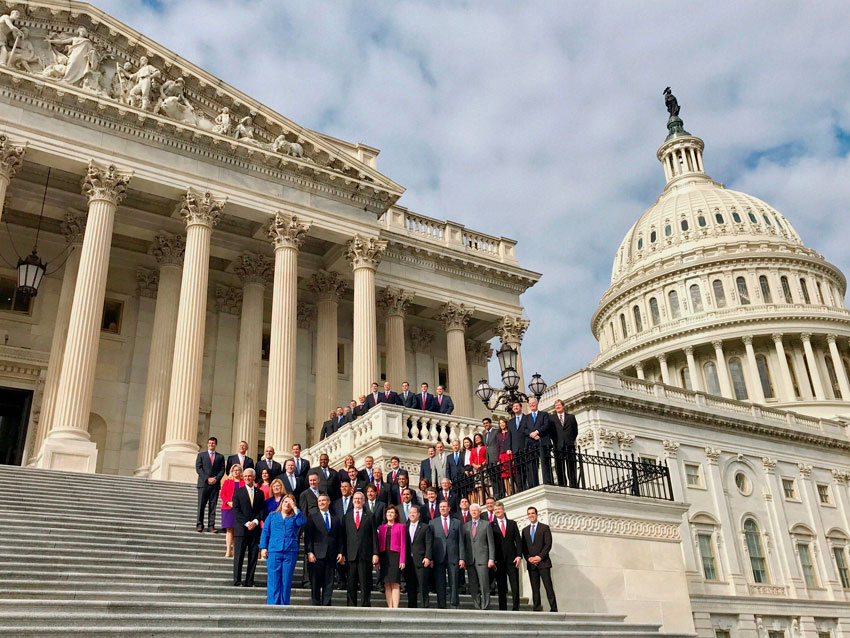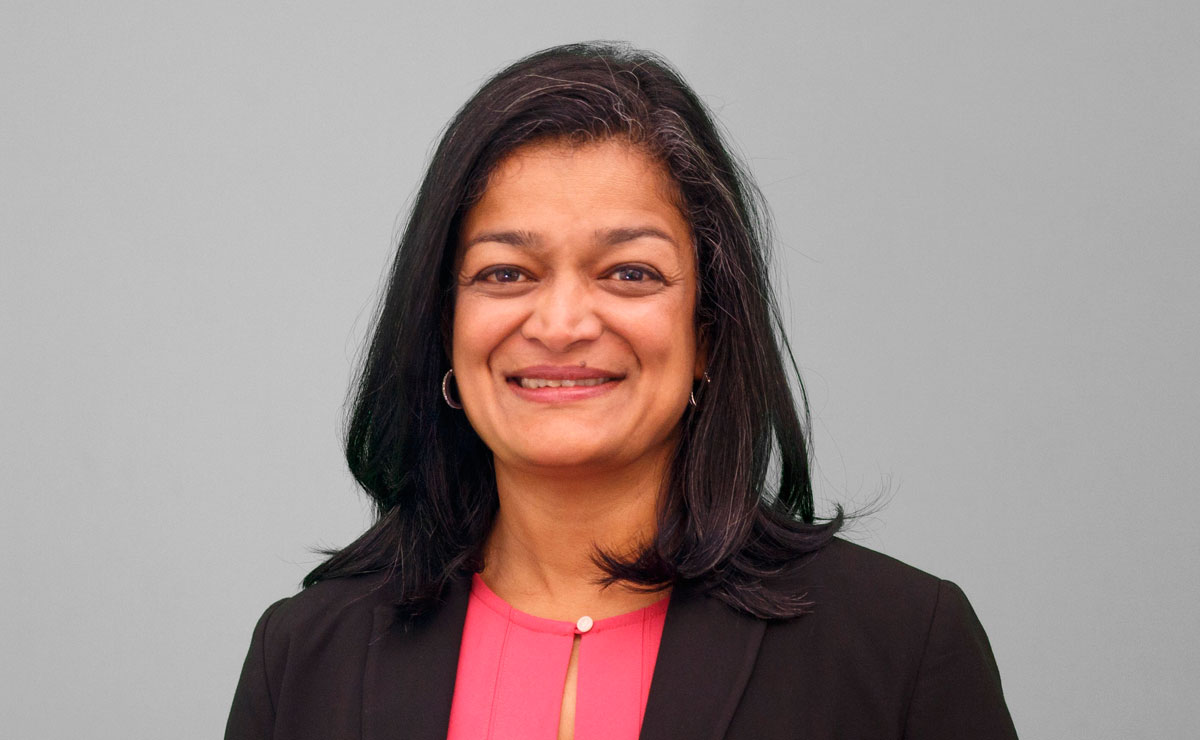INDIA IS INCREDIBLY IMPORTANT FOR ME: PRAMILA JAYAPAL
Congresswoman Pramila Jayapal (PramilaforCongress.com)
Describing India as “incredibly important,” Pramila Jayapal, the first ever Indian American woman to be elected to the U.S. House of Representatives feels there is a lot to be done to make sure the U.S. continues to support India on everything from poverty to clean energy, writes Lalit K. Jha. – @siliconeer #siliconeer #India #IndoUSRelations #PramilaJayapal
Jayapal, 51, was elected to the U.S. House of Representatives from the Seventh Congressional District of Washington State. She is the first Indian American woman to be ever elected to the House.
“I think India is not only incredibly important to me not only because I was actually born in India. I am very deeply tied with India. My parents still live in India. They live in Bangalore. My son was born in India. For me, the relationship between the U.S. and India is not only a political relationship, but also a personal relationship. It is actually what I live every day,” Jayapal told PTI.
Born in Chennai, she left India at the age of five for Indonesia, Singapore and then came to the U.S. at the age of 16.
Currently in Washington, D.C., to attend reorientation for the new elected members of the Congress, Jayapal said she believes there is still work to be done to make sure the U.S. continues to support the forward movement of India on everything from poverty to clean energy.
“That is going to require that we put resources to it. It is going to require that we strengthen our diplomatic relationship. And it is going to mean that we continue to advocate for democracy in the bigger sense of the word that includes religious freedom and tolerance in both India and the U.S.,” Jayapal said.
“I come from the land of Gandhi. Believe that war should be our last option and not our first. Both the U.S. and India have some work to do where we go on that front,” she said.
She also said it would be difficult for any kind of bipartisan support the agenda of the Republicans, who control both the House and the Senate, if the President-elect tries to implement some of his campaign rhetoric including those against religious minorities and undocumented immigrants.
“The priorities that I ran on and that I remain deeply committed to includes free college, really making college affordable, raising the minimum wage and providing economic opportunities to working people,” she said, adding that, it includes working on climate, environment and expanding social security.

“But all of those feel a little bit distant at this time because of the (incoming) Trump Administration. We are waiting to see what happens,” Jayapal said.
“We have to be absolutely ready to take on any behavior, rhetoric or legislation that attacks our constitution and civil rights that is against Muslim Americans, whether it is against undocumented immigrants or whether it is against the LGBTQ movement. I feel my first priority is to make sure I never back down from a necessary fight,” she said.
“Those are diametrically opposed to our values and that is going to make very difficult for a bipartisan cooperation,” Jayapal said.
“Absolutely. No question,” she said when asked if she plans to be the first line of defense against Trump’s policies on civil rights, minorities and undocumented immigrants.
Responding to a question on response from the Indian Americans, she said it has made her very proud and humbled.
“It (response) has been so amazing. The responses that I have got from Indian Americans all over the country particularly Indian American women who see themselves represented in a different way and see it as a possibility for themselves,” she said.
“I think, we had so many young women who have said to me I want to see myself in politics because you are there. That makes me very very proud and humbled. I think, it is not just Indian American women, I think women of color because we have too little representation and the different kinds of experiences that we bring because we are the first,” she added.
Jayapal completed her graduation from Georgetown University and earned her MBA from the Kellogg School of Management, Northwestern University. In between she took up a job at the Wall Street in New York.
After completing her MBA, instead of heading back to Wall Street, she became a civil rights activist. Immediately after 9/11 she founded Hate Free Zone, a resource for immigrant communities.
In recognition of her community work among the immigrants, the White House in 2012 felicitated her with “Champion of Change” award.
Jayapal says her life transformed for the better after she spent some time in India when she returned to the country after a gap of 25 years in April 1995.
“Living in India rejuvenated my spirit, brought alive parts of me that had faded into background of a modern life that is sometimes too efficient, where emotions are shielded by good manners, where space exits so bodies do not touch on buses or trains. In India I touched and was touched every day, by people, by scenes, by thoughts in my continuously bubbling mind,” Jayapal wrote in her book based on her experience of living in India some two decades she left her motherland.
The book “Pilgrimage to India: A Woman Revisits Her Homeland” was published in 2000. The book was based on her visit to India in April 1995.
“Behind all of the professional reasons to return to India was my intuition that my discovery of India would center on a discovery of self, and that ultimately my professional and personal lives would fuse together in inexplicable and powerful ways,” she wrote.


